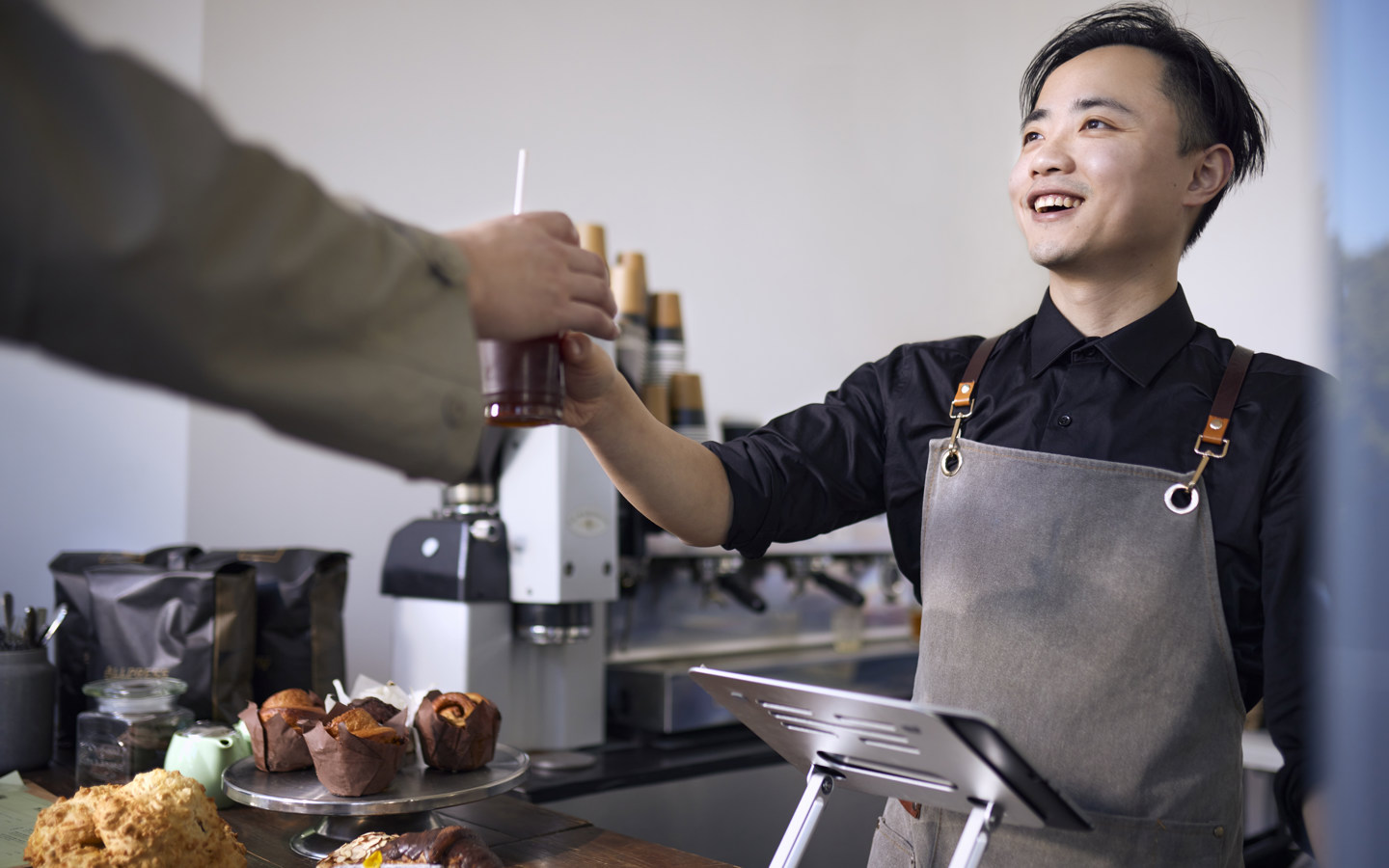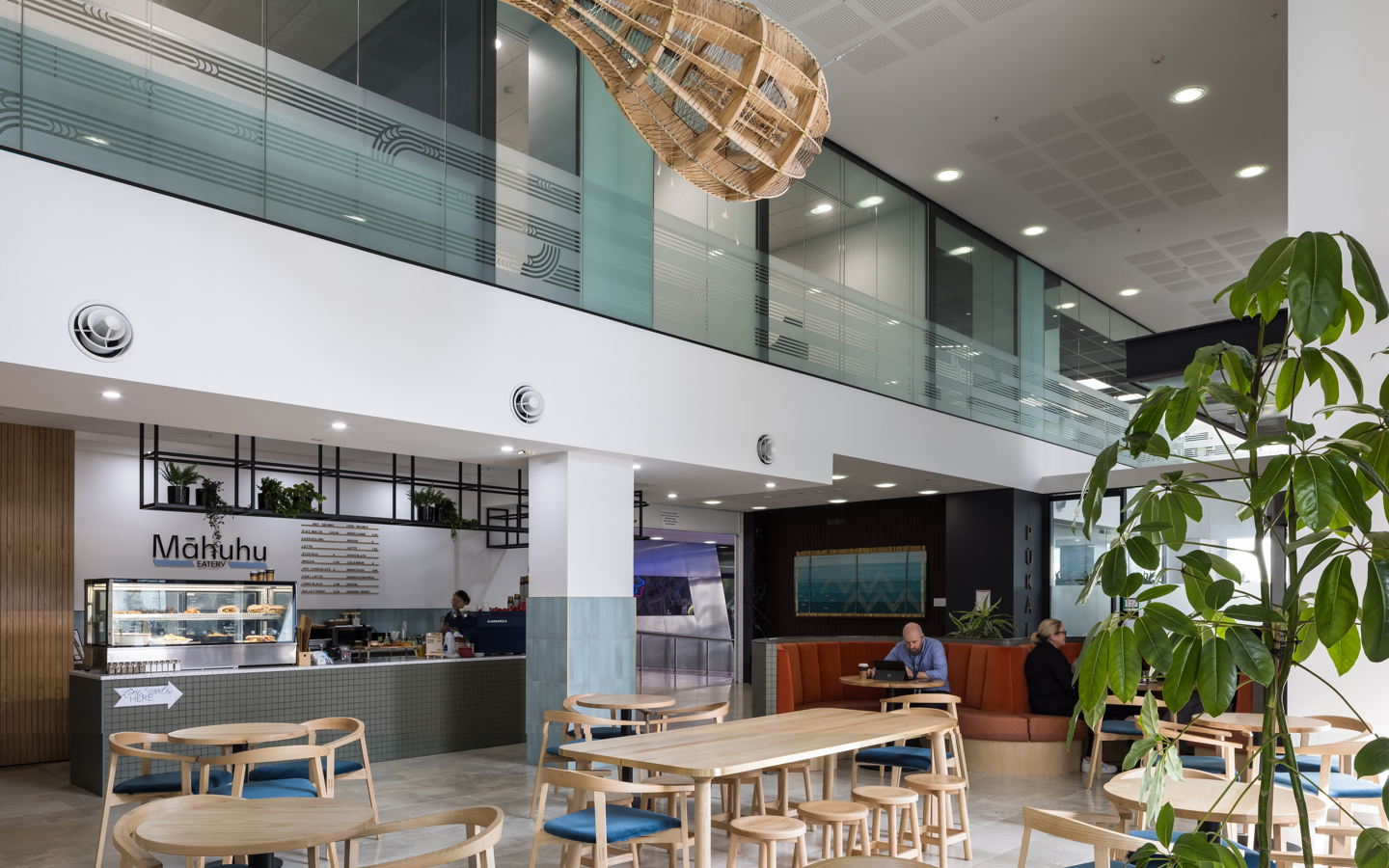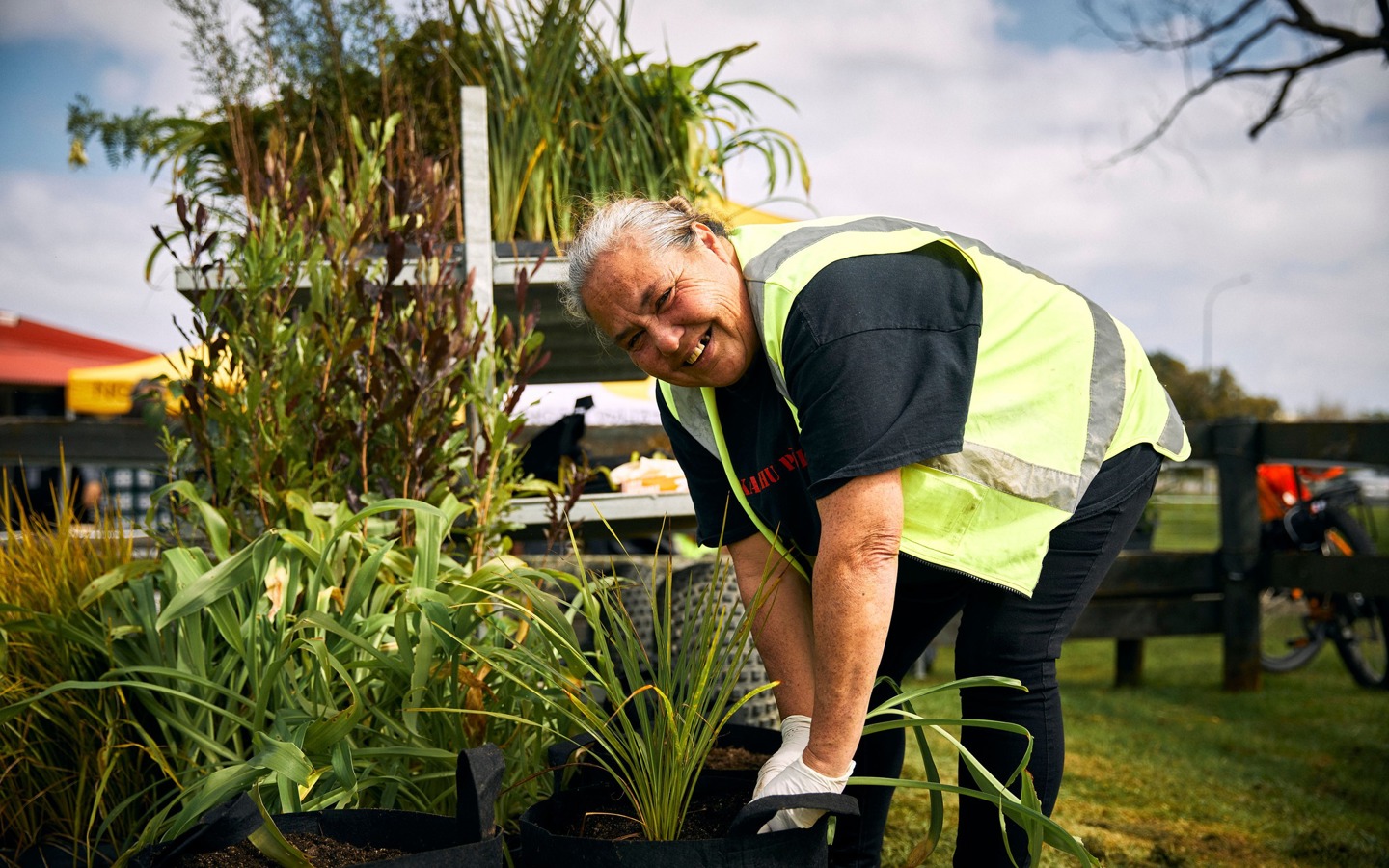
Originally from Shanghai, Edi arrived in Aotearoa almost a decade ago with zero hospitality experience. In 2014, he enrolled and studied at Cornell Institute of Business & Technology on nearby Hobson Street and kicked off his career volunteering at different local cafés before taking over Māhuhu in 2016.
He prides himself on knowing his regular customers by name; predominantly office workers within AECOM House and from nearby businesses. Mornings for Edi kick off at 5am, and coffees start to get served from 7am.
“Going directly from being a student to a café owner was a big change for me but I love it. Our customers are all very friendly, and it’s great building that rapport with our regulars. They’re always willing to test out new dishes that we try and give good honest feedback for us to take on which is great,” Edi says.

The changes in Te Tōangaroa that Edi has seen since 2016 include more artwork around the precinct and a new meeting room in AECOM House, which has resulted in more catering work for him. With Māhuhu Eatery having undergone a refurbishment, Edi says he Loves the new modernised feel.
“It’s a different vibe and the addition of a statement art installation from Ngāti Whātua Ōrākei creative Bernie Papa and Aka Whiro, is the cherry on top.
The mahi toi that Edi refers to is a 2.2m x 1m hīnaki, aptly named Hina. The hinaki is a traditional food gathering tool that was used to capture tuna (eels) which was a great indicator of environmental and economical sustenance for the iwi.
Recently, Edi met with the team behind Pourewa, a community vegetable garden on the corner of Kepa Road and Kupe Road in Ōrākei as he hopes to integrate different produce into the kai at Māhuhu Eatery.

Established in 2020 as a revegetation nursery for Ngāti Whātua Ōrākei, Pourewa was designed to incorporate the mauri, wairua, tikanga and whakapapa of the land with a traditional sustainable horticultural and agricultural practice. No artificial fertilisers or weed killers are used, and composting is at the heart of the operation. The aim is to preserve traditional practices to encourage food sovereignty - knowing where food comes from and how it is grown. For Edi, it means he can create his menu based on Pourewa’s harvesting schedules and incorporate more organic, fresh vegetables into the dishes that he serves.
When he’s not busy running Mahuhu Eatery, in his spare time you’ll find Edi playing badminton or spending time with his young whānau on the North Shore.
Ultimately, what drives Edi is simply to offer good service to people in Te Tōangaroa.
“People back in China are always hustling. They don’t have time to sit down and have a cup of coffee every morning. But in Aotearoa, it’s very relaxed. You see people here in Te Tōangaroa for work, and you see people bringing their kids here in the school holidays.
“I always want to be a part of the Te Tōangaroa community.”